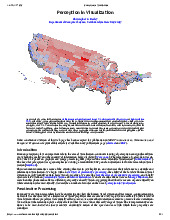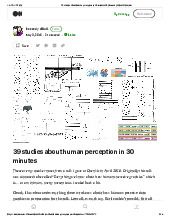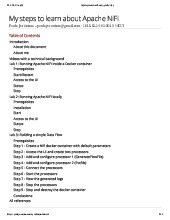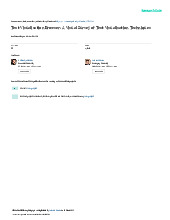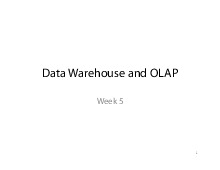



















Preview text:
Learning to Visualize: Surviving in the World of Data Nam Wook Kim
Mini-Courses — January @ GSAS 2019 About Me Nam Wook Kim 5th-Year Ph.D. Student Computer Science Department
Information Visualization & Human-Computer Interaction About You Goal To learn how to
design effective visualization Goal To learn how to evaluate visualization design Today Fundamental 1. Value of visualization 2. Design principles 3. Graphical perception Tomorrow Practical
1. Data model and visual encoding 2. Exploratory data analysis 3. Storytelling with data 4. Advanced visualizations Tomorrow Practical
1. Data model and visual encoding 2. Exploratory data analysis
Tableau { 3. Storytelling with data 4. Advanced visualizations The Value of Visualization Big Data Small Data Data Everywhere
Replace with a visualization example. Event sequence analysis??
Medical visualization (scientific) Health & Medicine Transportation
https://eng.uber.com/data-viz-intel/ http://atlas.cid.harvard.edu/ Economy
https://www.trulia.com/real_estate/Cambridge-Massachusetts/crime/ Public Safety Human Activity
The Industrial Revolution of Data
Joe Hellerstein, UC Berkley, 2008 Data Literacy
“The ability to take data — to be able to understand it,
to process it, to extract value from it, to visualize it, to
communicate it — that’s going to be a hugely
important skil in the next decades …’
Hal Varian, Google’s Chief Economist
The McKinsey Quarterly, January 2009 A Poverty of Attention
“…Information consumes the attention of its
recipients. Hence … a need to al ocate that attention
efficiently among the overabundance of information
sources that might consume it.” Herbert A. Simon Economist & Psychologist
